Resistivity and induced polarization inversion software (free to download)
ProfileR has been designed for surface array resistivity imaging. ProfileR is an inverse solution for a 2-D resistivity distribution based on computation of 3-D current flow using a quadrilateral finite element mesh. The inverse solution is based on a regularised objective function combined with weighted least squares (an Occams type solution). The code supplied has been compiled for Intel compatable processors, users working on different platforms should contact the author.
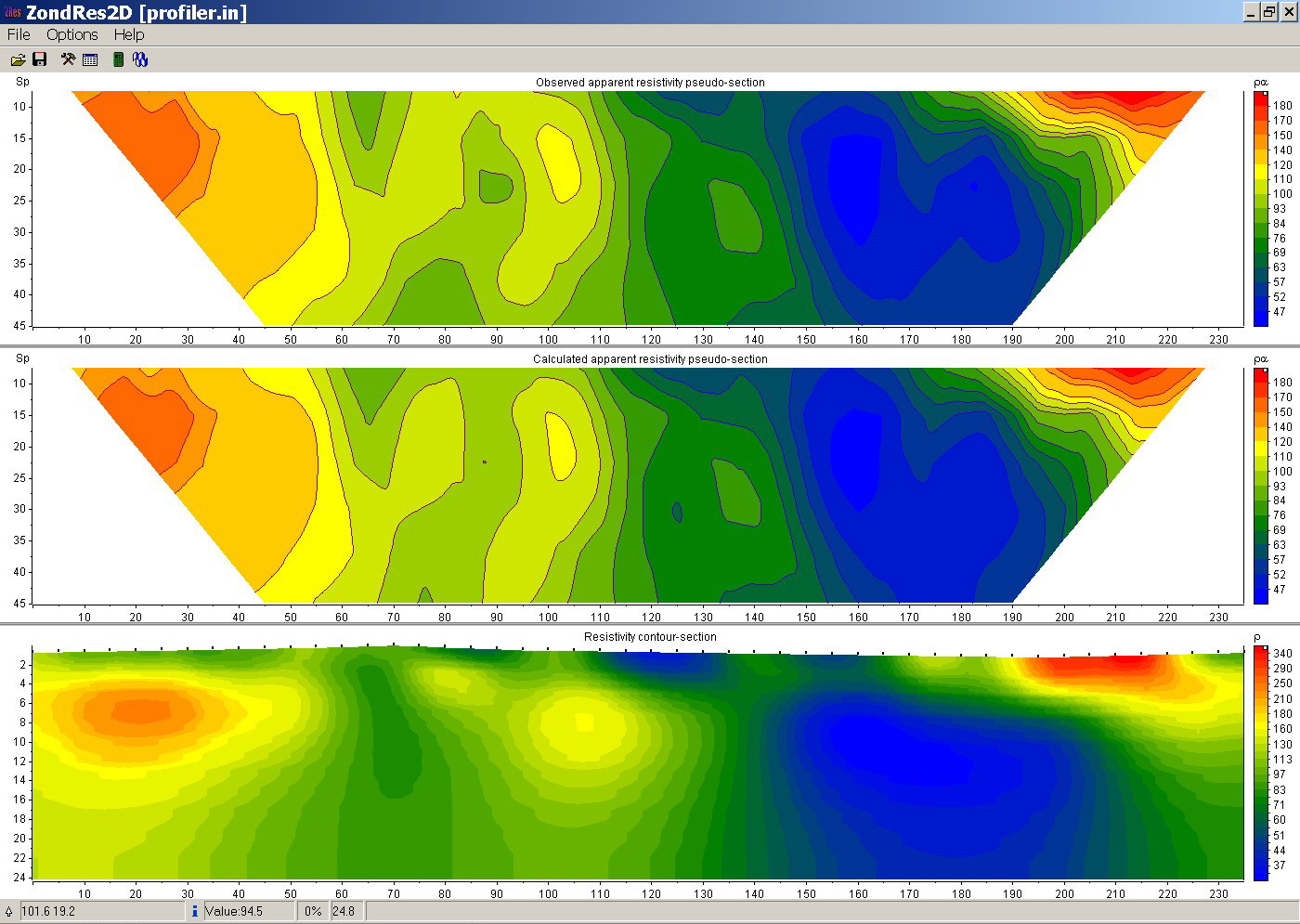 ProfileR has no built in graphical interface. The user can use his/her own software for graphical output (e.g. Surfer). Alternatively the interface Zondres2D written by Alexander Kaminsky can be used. An unlicenced free (older) version is attached in the download bundle along with a readme file to explain how to get started. The plot shown here is an example of the output from the Zondres2D graphical interface written for ProfileR by Alexander Kaminsky
ProfileR has no built in graphical interface. The user can use his/her own software for graphical output (e.g. Surfer). Alternatively the interface Zondres2D written by Alexander Kaminsky can be used. An unlicenced free (older) version is attached in the download bundle along with a readme file to explain how to get started. The plot shown here is an example of the output from the Zondres2D graphical interface written for ProfileR by Alexander Kaminsky
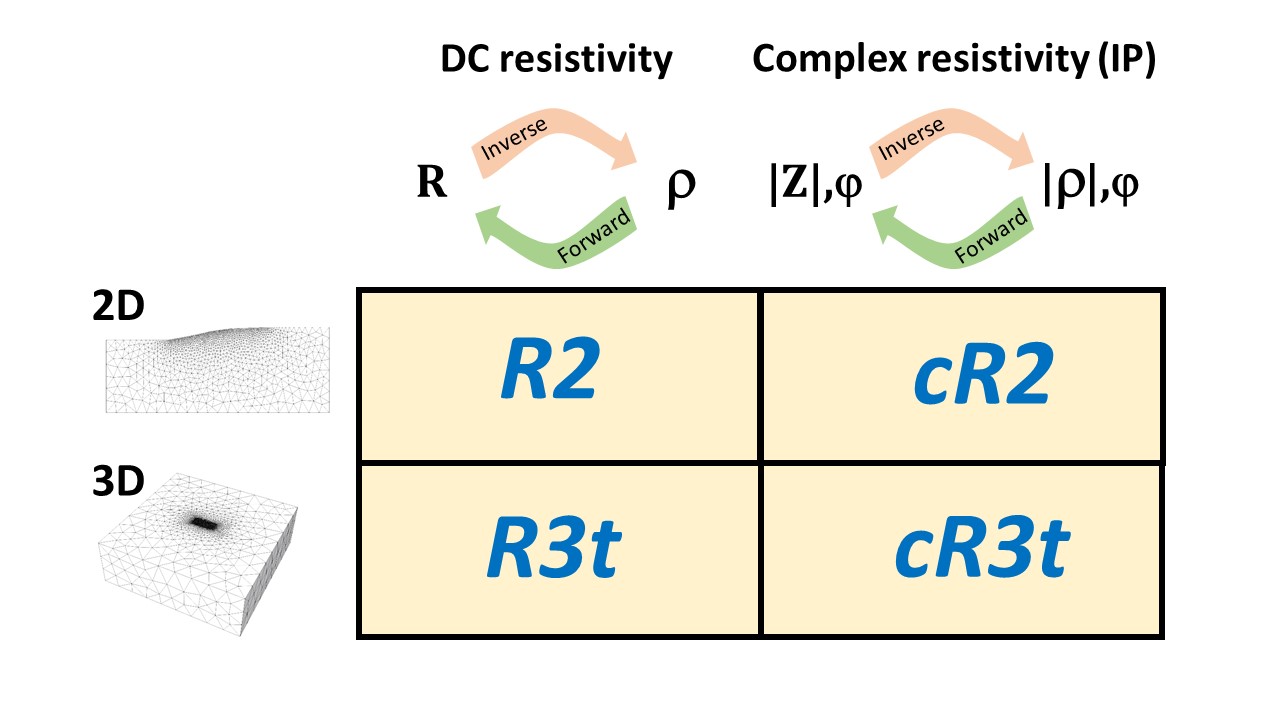
The R family of codes
A set of four codes have been developed to allow forward and inverse modelling of 2D and 3D DC resistivity and induced polarization (complex resistity). The meshing and data input are similar for all codes.
R2 is a forward/inverse modelling code for 2-D resistivity problems. Regions are discretised in a quadrilateral or triangular mesh.
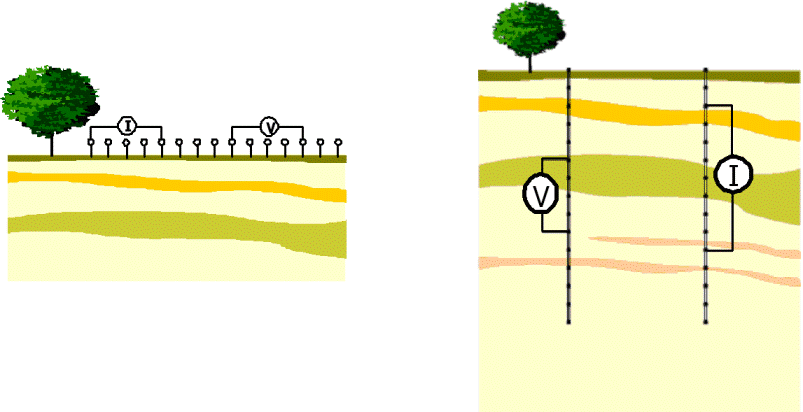 The inverse solution is based on a regularised objective function combined with weighted least squares (an Occams type solution) as defined in Binley and Kemna (2005). Electrodes can be placed on the ground surface or in boreholes. A 32bit and 64bit version for Intel compatible processors are provided in the download. R2 will output forward and inverse models in x,y,z ASCII format suitable for plotting with third party software. R2 also produces vtk formatted output allowing quick plotting with Paraview
The inverse solution is based on a regularised objective function combined with weighted least squares (an Occams type solution) as defined in Binley and Kemna (2005). Electrodes can be placed on the ground surface or in boreholes. A 32bit and 64bit version for Intel compatible processors are provided in the download. R2 will output forward and inverse models in x,y,z ASCII format suitable for plotting with third party software. R2 also produces vtk formatted output allowing quick plotting with Paraview
cR2 is is a forward/inverse modelling code for 2-D complex resistivity (induced polarization) problems. cR2 is based on R2 and has a similar input/output structure.


R3t is a forward/inverse solution for 3D current flow in an unstructured (tetrahedral) or structured (triangular prism) mesh.
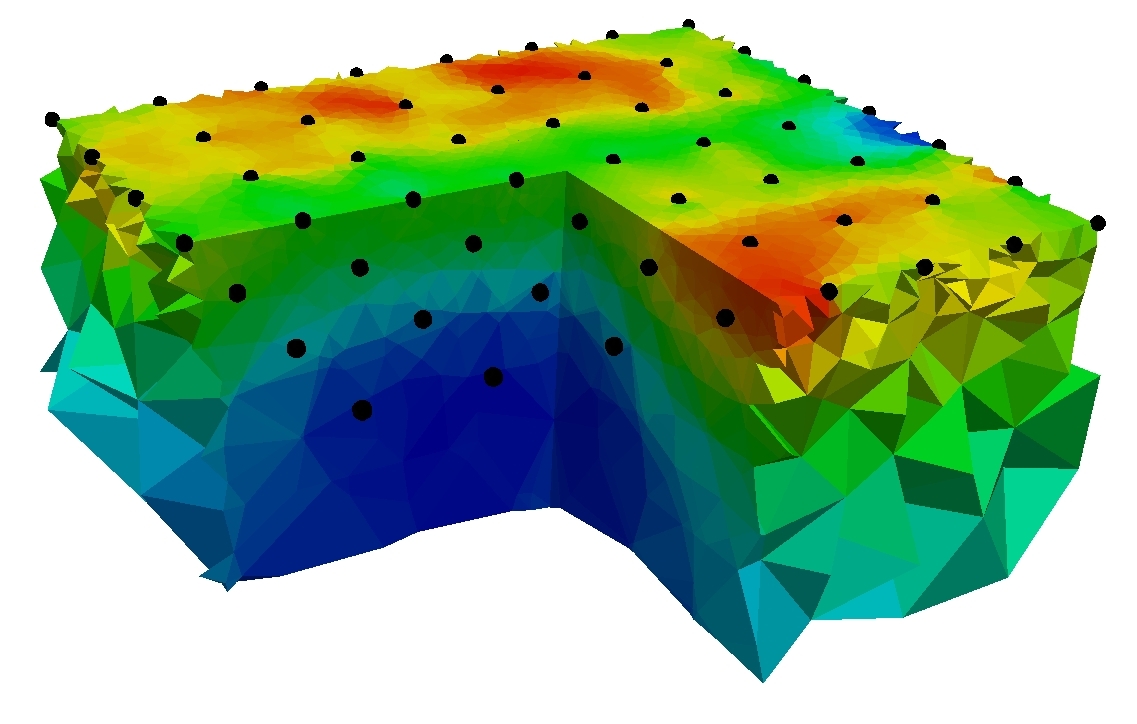 The inverse solution is based on a regularised objective function combined with weighted least squares (an Occams type solution) as defined in Binley and Kemna (2005). R3t runs in a 64bit Intel compatible processor (64bit is necessary for running large problems).
The inverse solution is based on a regularised objective function combined with weighted least squares (an Occams type solution) as defined in Binley and Kemna (2005). R3t runs in a 64bit Intel compatible processor (64bit is necessary for running large problems).
cR3t is a forward/inverse solution for 3-D complex resistivity (induced polarization) problems using unstructured (tetrahedral) or structured (triangular prism) mesh. cR3t using the same meshing structure as R3t but treats resistivity as a complex parameter (defined in terms of magnitude and phase angle). cR3t runs in a 64bit Intel compatible processor (64bit is necessary for running large problems).
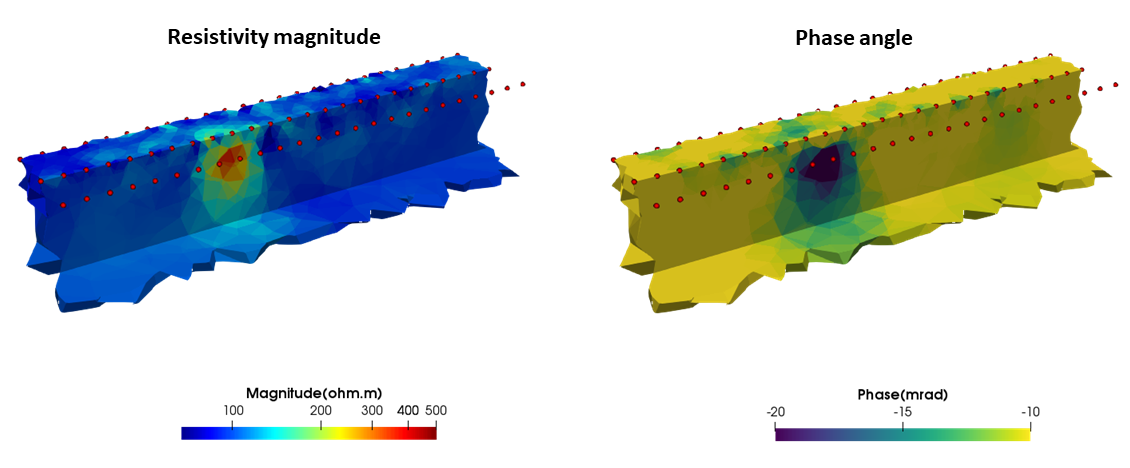
Links to software useful for the above codes
ParaView - open source data visualisation software - ParaView
Mesh generator with graphical interface - Gmsh
 - a new Python GUI for R2, R3t, cR2 and cR3t -
ResIPy
- a new Python GUI for R2, R3t, cR2 and cR3t -
ResIPy
